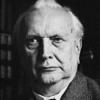Karl Jaspers

Karl Jaspers
Karl Theodor Jasperswas a German-Swiss psychiatrist and philosopher who had a strong influence on modern theology, psychiatry, and philosophy. After being trained in and practicing psychiatry, Jaspers turned to philosophical inquiry and attempted to discover an innovative philosophical system. He was often viewed as a major exponent of existentialism in Germany, though he did not accept this label...
NationalityGerman
ProfessionPsychologist
Date of Birth23 February 1883
CountryGermany
The moment is the sole reality.
It is the search for the truth, not possession of the truth which is the way of philosophy. Its questions are more relevant than its answers, and every answer becomes a new question.
We must learn to talk with each other, and we mutually must understand and accept one another in our extraordinary differences.
The study of law left me unsatisfied, because I did not know the aspects of life which it serves. I perceived only the intricate mental juggling with fictions that did not interest me.
The Greek word for philosopher (philosophos) connotes a distinction from sophos. It signifies the lover of wisdom (knowledge) as distinguished from him who considers himself wise in the possession of knowledge. This meaning of the word still endures: the essence of philosophy is not the possession of the truth but the search for truth....Philosophy means to be on the way. Its questions are more essential than its answers, and every answer becomes a new question.
At the present moment, the security of coherent philosophy, which existed from Parmenides to Hegel, is lost.
A scientific approach means knowing what one knows and what one doesn't. Absolute or complete knowledge is unscientific.
With the disintegration of all that [Nietzsche] had revered, existence, to him, had become a desert in which only one thing remained, namely that which had relentlessly forced him into this path: truthfulness that knows no limits and is not subject to any condition.
Philosophy as practice does not mean its restriction to utility or applicability, that is, to what serves morality or produces serenity of soul.
The 'public' is a phantom, the phantom of an opinion supposed to exist in a vast number of persons who have no effective interrelation and though the opinion is not effectively present in the units. Such an opinion is spoken of as 'public opinion,' a fiction which is appealed to by individuals and by groups as supporting their special views. It is impalpable, illusory, transient; ''tis here, 'tis there, 'tis gone'; a nullity which can nevertheless for a moment endow the multitude with power to uplift or destroy.
My own being can be judged by the depths I reach in making these historical origins my own.
It has become obligatory to fulfil a function which shall in some way be regarded as useful to the masses...Even an articulated mass always tends to become unspiritual and inhuman. It is life without existence, superstition without faith. It may stamp all flat; it is disinclined to tolerate independence and greatness, but prone to constrain people to become as automatic as ants.
The great philosophers and the great works are standards for the selection of what is essential. Everything that we do in studying the history of philosophy ultimately serves their better understanding.
There is no God, cry the masses more and more vociferously; and with the loss of God man loses his sense of values — is, as it were, massacred because he feels himself of no account.